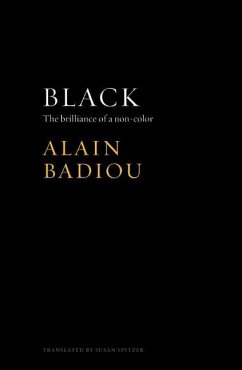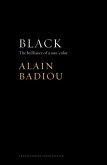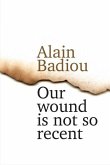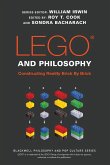Who hasn't had the frightening experience of stumbling around in the pitch dark? Alain Badiou experienced that primitive terror when he, with his young friends, made up a game called "The Stroke of Midnight." The furtive discovery of the dark continent of sex in banned magazines, the beauty of black ink on paper, but also the mysteries of space and the grief of mourning: these are some of the things we encounter as the philosopher takes us on a trip through the private theater of his mind, at the whim of his memories. Music, painting, politics, sex, and metaphysics: all contribute to making black more luminous than it has ever been.
Hinweis: Dieser Artikel kann nur an eine deutsche Lieferadresse ausgeliefert werden.
Hinweis: Dieser Artikel kann nur an eine deutsche Lieferadresse ausgeliefert werden.
"Badiou's Black is a singular and remarkable book. This is not the Badiou of ontology, set theory and the theorization of subjectivity, nor the Badiou of incisive political intervention or philosophical-historical summation. Working through a series of ficto-critical vignettes, Black is composed of subtle and diverse meditations on black as a darkness that obscures at the same time as it discloses. Black at once hearkens back to a style of personal philosophy that seemed lost with Blanchot, while also looking forward to a new mode of singular meditation that is perhaps necessary for twenty-first-century thought."
Claire Colebrook, Penn State University
Claire Colebrook, Penn State University








